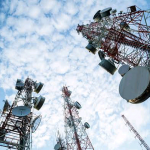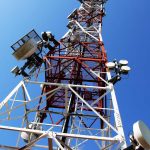The Federal Government has abolished the 5% excise duty previously imposed on telecommunications services, a move aimed at reducing cost pressures for millions of Nigerians already struggling with rising tariffs.
The Executive Vice Chairman of the Nigerian Communications Commission (NCC), Aminu Maida, confirmed that President Bola Tinubu ordered the removal of the levy during discussions on the Finance Act. According to him, the directive is expected to bring immediate relief to over 171 million active telecom users across the country.
The excise duty was introduced in 2022 under the Buhari administration as part of efforts to boost non-oil revenue. It covered both voice and data services, with operators required to remit payments monthly. Government officials defended the policy at the time, pointing to Nigeria’s widening revenue shortfall and the need to expand the tax base.
From inception, however, the tax sparked criticism from telecom operators, who argued that it would place an extra burden on both companies and consumers. The Association of Licensed Telecom Operators of Nigeria (ALTON) noted that operators were already grappling with more than 39 separate taxes, a 7.5% Value Added Tax, and a mandatory 2% contribution of annual revenue to the NCC. Added to these were soaring operational costs, especially from the use of diesel to power base stations in the absence of reliable electricity supply.
Operators warned they could not absorb the new levy and would have to pass costs directly to subscribers. This effectively raised the total tax burden on telecom services to about 12.5%, which they described as unsustainable and damaging to both the industry and consumers.
The pressure on subscribers intensified earlier this year when the NCC approved a 50% increase in telecom tariffs. Although operators had sought as much as a 100% rise, regulators settled for half the demand to balance consumer protection with the rising cost of operations. Inflation, high energy costs, foreign exchange shortages, and expensive telecom imports were all cited as reasons for the hike.
The tariff adjustment has already reshaped household spending. MTN’s 1.8GB monthly plan, which previously cost N1,000, now sells for N1,500, while its 20GB plan rose from N5,500 to N7,500. SMS charges also jumped from N4 to N6. The average cost of 1GB of data increased from about N287 to N431, with some operators listing even higher rates depending on the package.
For many households, telecommunications—once a predictable monthly expense—has become another source of financial pressure. Users, particularly those on low incomes, are cutting back on data use, sticking to cheaper bundles, or limiting non-essential applications.
The removal of the 5% duty is now expected to cushion some of these pressures, though operators and subscribers alike will be watching closely to see if the relief translates into more affordable services in practice.










